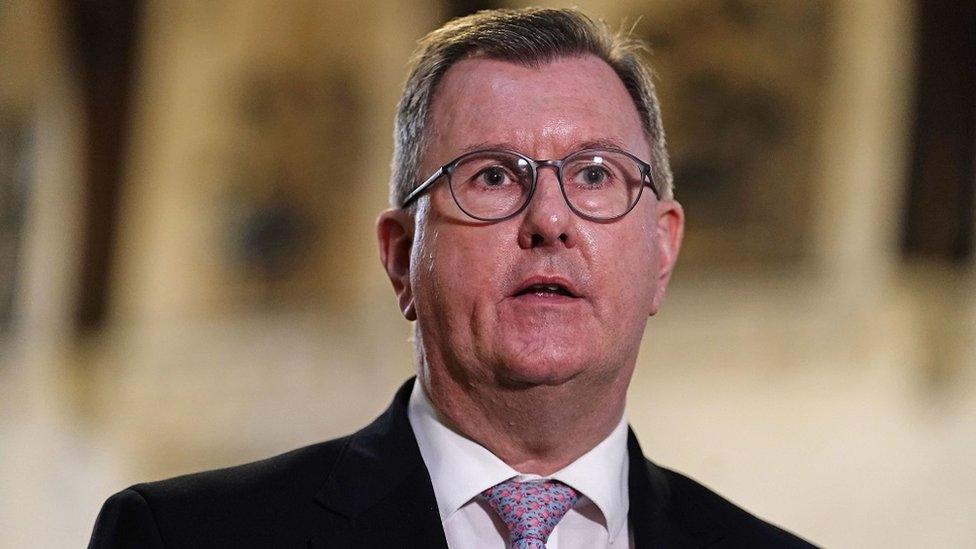Sir Jeffrey Donaldson: Attorney General issues warning on social media posts
- Published

Sir Jeffrey Donaldson was charged with historical sexual offences, which he denies
The Attorney General has warned of potential offences from social media posts discussing the court case facing Sir Jeffrey Donaldson.
The former DUP leader was charged with rape and other historical sexual offences last Thursday.
He insists he will be strenuously contesting the charges.
Dame Brenda King has now issued a statement about potential contempt of court issues and victims' right to anonymity.
The police previously stated speculation about the case may affect the judicial process.
The Ulster Unionist Party leader, Doug Beattie, said there should be a crackdown on potential offenders.
Speaking on BBC NI's The Nolan Show, he said the police needed to "make an example" of people.
"I certainly think they should be doing more than putting out a statement.
"They need to cut this and they need to cut this pretty quickly."
Retired police officer Jon Burrows told the programme the police should be more robust in their language and action.
"The speculation online has been absolutely dreadful."
Along with a 57-year-old woman who faces related charges, the former DUP leader is due to appear at Newry Magistrates' Court later this month.

The Attorney General's statement, which did not directly reference the case, said: "The Attorney advises the public as well as media outlets to think about potential consequences before publishing, posting or sharing commentary, online or otherwise.
"The Attorney would remind the public and the media of the risk of any person publishing, posting or sharing material being found to be in contempt of court."
Contempt of court issues are when someone risks unfairly influencing a case and jeopardise someone receiving a fair trial.
Offenders can be fined or sentenced to a period of imprisonment.
Dame Brenda's statement also pointed out: "The PSNI has already highlighted the separate statutory requirements to protect the anonymity of any person against whom certain sexual offences, including rape, are alleged to have been committed.
"The relevant legislation is the Sexual Offences (Amendment) Act 1992."